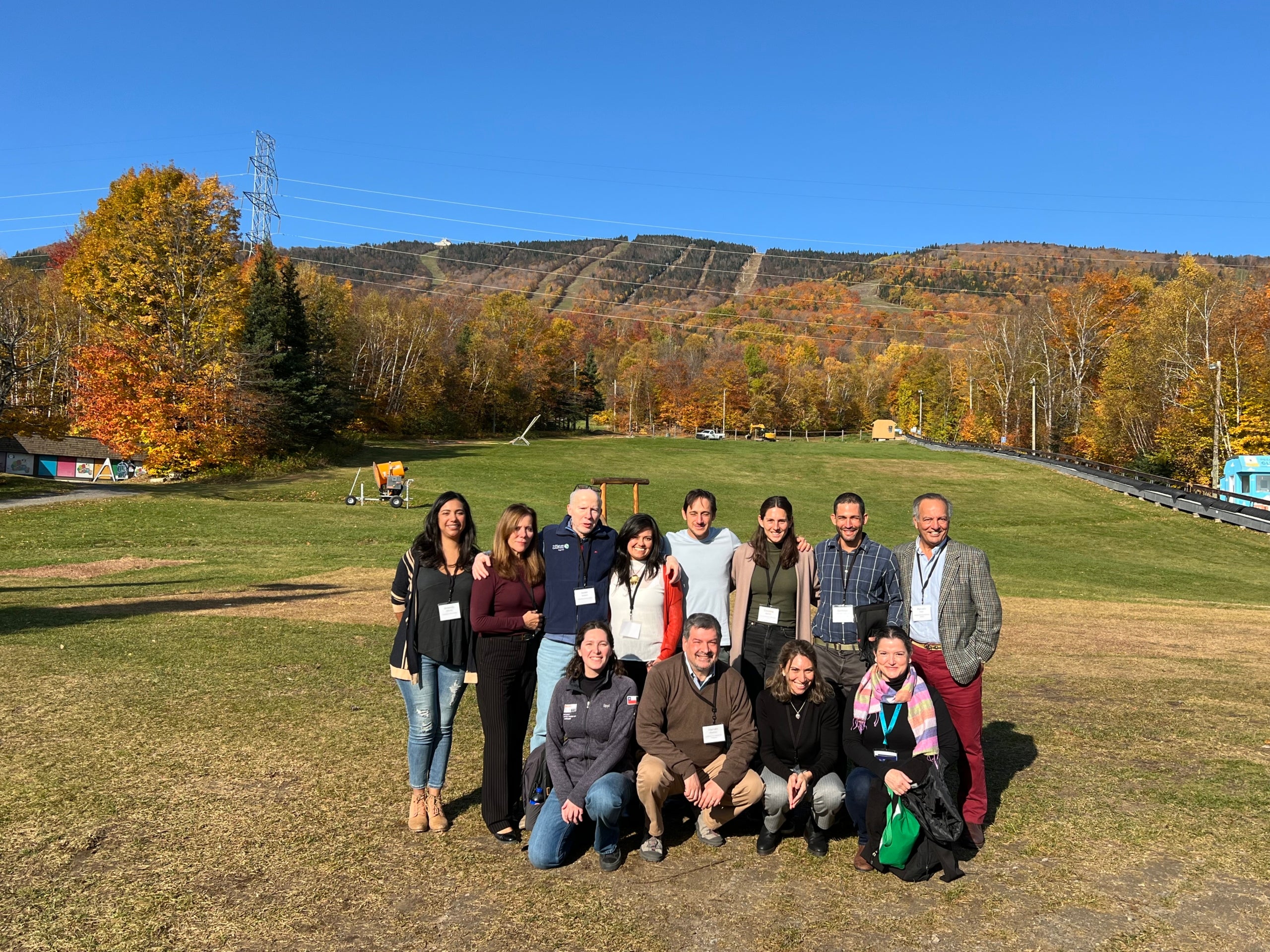A Latin American Network for Private and Civic Land Conservation Continues to Take Shape
By Hernan Mladinic and Lily Robinson
Seventeen speakers and participants from Latin American nations joined a gathering of 260 conservation leaders from around the world at the fourth International Land Conservation Network (ILCN) Global Congress in Beaupré, Canada, last month.
The event marked just over four years since ILCN Regional Representative for Latin America Hernan Mladinic began to bring together practitioners in a nascent regional network for private and civic land conservation in Latin America. That network has since tripled in number to nearly 60 active participants and is growing in its cohesion and breadth of expertise, all of which was reflected in the presence and insights of the group that attended the Congress.

The Latin American network-building effort has been supported by the ILCN in collaboration with The Nature Conservancy to identify and expand policy enabling conditions for voluntary private and civic land conservation and to foster a dynamic and connected community that can share good practices, experience, and scale their efforts across the region. A paper on these policy enabling conditions, written by University of Montana graduate student Zac Hummel, will soon be available.
Landowners, private individuals and organizations have been working to voluntarily protect land in Latin America for many decades. In Brazil, this was happening as early as the 1930s. Today, Mladinic estimates from reports on National System of Protected Area (NSPA) and Privately Protected Area (PPA) networks, that this work protects over 5 million hectares, or about 1 percent of total land protected in Latin America. But acreage is not the only measure of progress. So too are metrics such as the integrity of the human connections and relationships that are the basis of protecting the region’s rich natural and cultural heritage.
These relationships have developed over time into national networks for voluntary land conservation led by civil society actors, which are active in Brazil, Argentina, Peru, Colombia, Belize, Guatemala, Panama, and Paraguay. In other countries, such as Mexico and Chile, a vibrant private and civic land conservation community of practice is implementing new legal tools and policy instruments to support landowners and NGOs in complementing government- and Indigenous-led conservation efforts.
Nonetheless, this regional private and civic land conservation movement remains fragmented. In the late 1990s, a Latin American network for voluntary land conservation was established and held several meetings, the last of which took place in 2018 in Chachapoyas, northern Perú. Without infrastructure and funding to keep it going, those connections have persisted without a formal framework since that last gathering.
To help this network to re-emerge since 2020, the ILCN has facilitated peer learning and knowledge sharing amongst Latin American land conservation practitioners, through publications, webinars, and an actively moderated WhatsApp group that enables ongoing and frequent communication.
The network has grown from 17 members in 2020 to 58 members in 2024 and the number of countries represented has risen from 8 to 16. Only Belize, El Salvador, Nicaragua, and Haiti are still without representation in the network. Within the group, there are 10 national Private Protected Area (PPA) networks; three subnational networks; and a regional network (the Network of Environmental Funds of Latin America and the Caribbean, or RedLAC).
The success of this group thus far has inspired its members to continue striving to expand and consolidate the network. In doing so, they aim to broaden the exposure, expertise, and resources it provides. When its members reconvene in Australia in 2027 for the fifth ILCN Global Congress, it is on track to be larger, stronger, and even more prepared to share connections, learnings, and innovation amongst each other and with this growing global community of practice.
Have news? Share updates from your organization or country by emailing lrobinson@lincolninst.edu.
